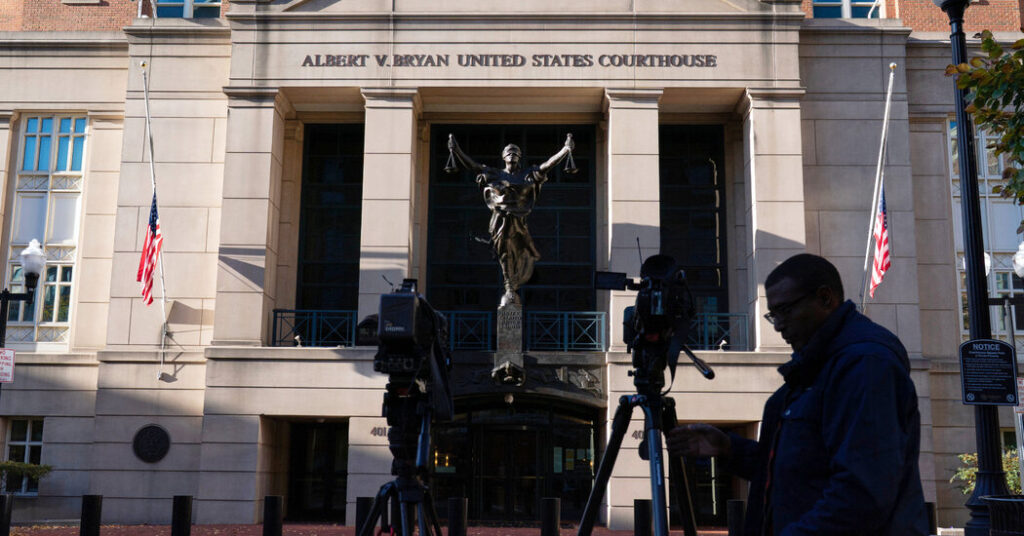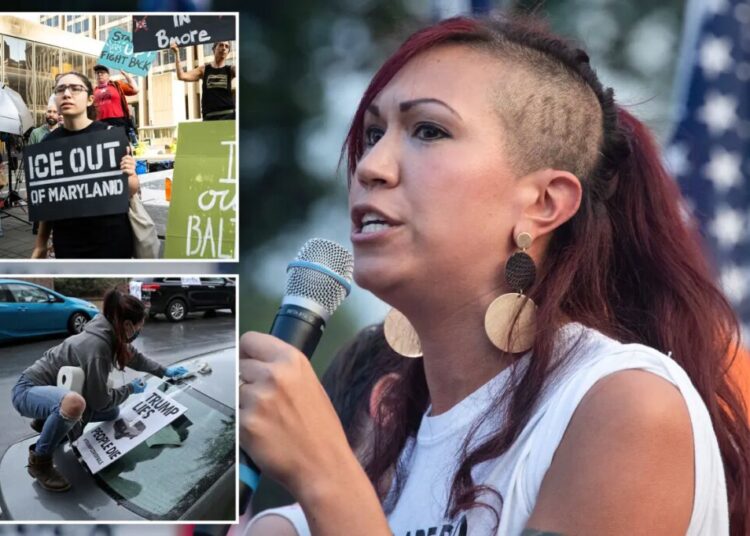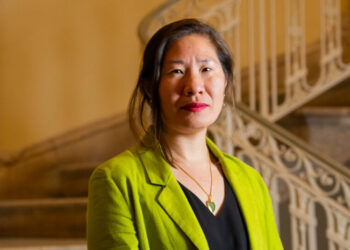In tossing out the indictments of both James B. Comey, the former F.B.I. director, and Letitia James, New York’s attorney general, Judge Cameron McGowan Currie has opened the door for a wide range of legal scenarios that could further derail President Trump’s quest for retribution against his perceived foes.
The federal judge ruled on Monday that Mr. Trump’s handpicked prosecutor, Lindsey Halligan, had been unlawfully appointed to the job of U.S. attorney in the Eastern District of Virginia, and invalidated the indictments she had secured against Mr. Comey and Ms. James.
Attorney General Pam Bondi has vowed to appeal the judge’s ruling, and it is possible that such an appeal could be successful and revive the cases. However, Ms. Bondi and others also have to make a separate decision about whether to try to refile the charges — a decision that could be complicated by competing administration interests and potential fights over the statute of limitations.
Judge Currie’s order also raised the possibility of a broader legal morass for the Trump administration.
The final sentence of her decision noted that while Ms. Halligan was not a valid U.S. attorney, the power to appoint one “during the current vacancy lies with the district court.”
With those words, the judge appeared to be prodding federal judges in Virginia to act on a section of federal law that lets them pick a replacement for Ms. Halligan who would serve until whenever the Senate confirmed a presidential nominee to the position.
“The real wild card now is what will the judges do: Will they leave the position open, or will they fill it?” said Patrick Cotter, a former federal prosecutor who now works at the firm UB Greensfelder. “It seems to me that the court is unlikely to pick someone who would fit the profile of most Trump U.S. attorneys, and that person would be the person who would make the decision whether to seek a new indictment, how to seek it and even the timing of it.”
It’s unclear whether the Trump administration would fight any attempt by the judges sitting in that district to install a new interim U.S. attorney.
A Justice Department spokesman maintained that the judge’s ruling did not remove Ms. Halligan, and reaffirmed the department’s plan to appeal.
A spokeswoman for Ms. James’s legal team declined to comment. A lawyer for Mr. Comey did not immediately respond to a request for comment.
Mr. Trump kicked off the chaotic situation when he forced out his first choice for U.S. attorney for the Eastern District of Virginia, Erik Siebert. Mr. Siebert had warned his superiors at the Justice Department’s headquarters that the evidence against Mr. Comey and Ms. James was insufficient to support criminal charges, as The New York Times previously reported.
Despite those warnings, Mr. Trump publicly demanded that charges be sought against both of them. He has also called for the prosecution of another longtime nemesis, Senator Adam Schiff, Democrat of California, who is being investigated in a different district.
In September, the president picked Ms. Halligan, a White House aide who had served as his personal lawyer but had never been a prosecutor before, to run the office and take over the investigations of Mr. Comey and Ms. James. Within a matter of days, a grand jury had indicted Mr. Comey for allegedly lying to a Senate committee in 2020, charges he denies.
The next month Ms. Halligan notched a second indictment, against Ms. James, for allegedly lying to financial institutions to get a better rate on a mortgage for a home she did not live in. She also denies the charges.
Both defendants fought the cases with a number of arguments — that the charges were unsubstantiated and derived not from a sober review of the facts and law, but driven by the president’s personal spite.
Mr. Comey said he was grateful for the judge’s decision to dismiss “a prosecution based on malevolence and incompetence.” In a video posted online on Monday, Mr. Comey said Mr. Trump “will probably come after me again,” but added that he had faith in “an independent federal judiciary.”
Lawyers for Ms. James and Mr. Comey have accused the government of vindictive prosecution, based in no small part on the president’s own statements of animus toward each of them, and public directions given to the department.
Lawyers for the defendants have also argued that the grand juries were mishandled, and that Ms. Halligan’s appointment violated a basic principle of federal law: that the president could not simply keep appointing temporary officials one after another to avoid the requirements of Senate confirmation. On Monday, Judge Currie sided with the defendants on the question of Ms. Halligan’s appointment, noting that Ms. Halligan was the second interim U.S. attorney the administration had installed to Virginia’s Eastern District. That, she said, was unlawful.
Now, the Trump Justice Department must decide how to appeal, and whether to try to refile the indictment without Ms. Halligan while it fights that appeal.
Any attempt to refile the indictment against Mr. Comey would certainly be challenged by his lawyers, who have argued that the five-year statute of limitations has run on the testimony he gave on Sept. 30, 2020. The indictment won by Ms. Halligan landed on Sept. 25 of this year, just five days before the statute’s expiration.
Prosecutors have already argued in court that the statute has not expired because charges were filed in time, while Mr. Comey’s lawyers maintain the government cannot turn back time and redo their bungled case.
Those continuing challenges compound the tough questions the administration must now navigate in determining how to handle Monday’s legal defeat.
“You have to ask, what are the Justice Department and the president trying to accomplish? If what they are really interested in is trying to prosecute Comey, then you might not appeal, because the judge’s ruling left a way open for the grand jury to re-indict him,” Mr. Cotter said. “But if they mostly want to expand the president’s power to appoint U.S. attorneys as broadly as possible, they will appeal.”
The current situation is another confounding moment in what Mr. Cotter described as “a multi-act tragedy — for the defendants, certainly for the Justice Department and for the country.”
Devlin Barrett covers the Justice Department and the F.B.I. for The Times.
The post The ‘Wild Card’ in the Comey and James Cases: Will Judges Pick the Next Prosecutor? appeared first on New York Times.




